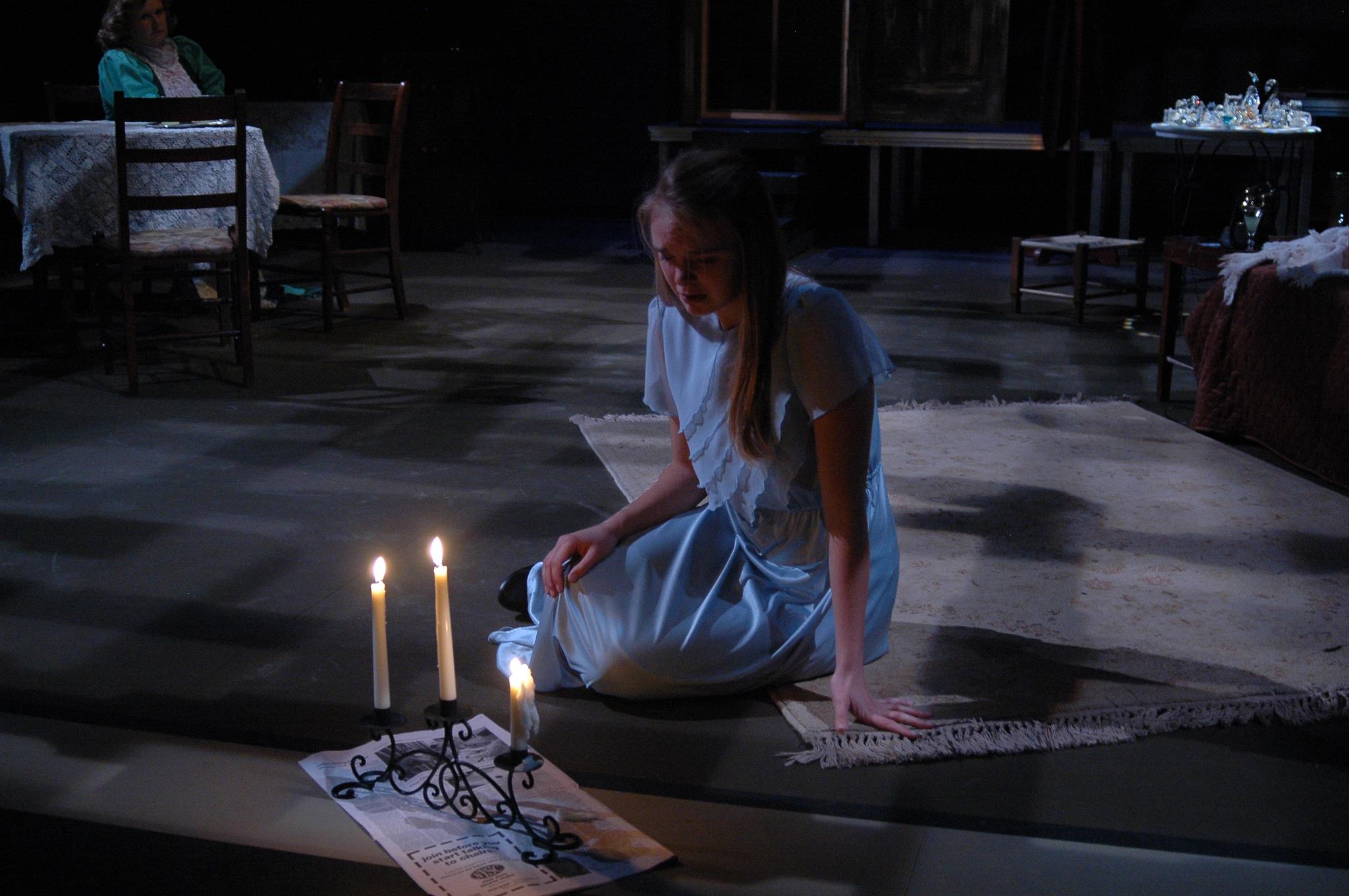‘The Glass Menagerie’: an introspective adventure

Caitlin Campbell plays Laura in the Tennesse William’s classic.
“I like a lot of adventure,” said Tom Wingfield, a character of the Tennessee Williams drama, “The Glass Menagerie.” The play, recently shown on Sept. 21 and 22 at the Clayton Center for the Arts and directed by CCA executive director Robert Hutchens, is not about a lot of adventure, but instead puts the human need for escapism into the spotlight.
The plot revolves around the poor Wingfield family and their small alley apartment in St. Louis. Taking place in 1937, Tom Wingfield struggles to provide for his overbearing mother and anxious sister, while always under the shadow of his runaway father’s smiling specter. Tom, played by Maryville College senior Walker Harrison, narrated the play with command, evidently a seasoned actor.
Events unfold as mother Amanda, played by CCA director of marketing Cheri Compton, attempts to get her terribly shy and crippled daughter Laura, played by MC junior Caitlin Campbell, a gentleman caller. Campbell successfully portrayed Laura’s transformation to nervous girl to glowing woman through the course of the play.
When Amanda finally gets her wish and a gentleman caller, played by MC sophomore Cameron Hite, arrives in the second act, the tension mounts as the family’s desires and personal illusions come into play. The themes of family struggle, discontent and the failings of the American Dream echo throughout the piece.
The idea of escapism seems especially relevant for modern viewers as Tom’s desire for adventure and partaking in escapist activities, such as going to the movies and drinking, remind the audience of today’s moviegoers, who are always anticipating the next big blockbuster or thrilling television season.
The love of an entertainment industry, which only seems to get bigger every year, offering always “bigger” and “brighter” distractions, is shown to have its origins in wanting to escape from the dreariness of life, keeping people like Tom, who goes to the movies every night, mildly satisfied watching others live out in film the adventures they only wish they could have but never pursue. There were a couple mild vocal slips by the actors, and a couple scenes in the first act failed to hold interest as the actors dropped energy or appeared to lose focus.
However, the overall excellent acting became only stronger in the second act, as the actors seemed to gain confidence. Even with the depressing topic of the play there was enough well executed humor, often sarcastic, slipped in to allow the audience the chance to smirk or chuckle. One example would be that every morning Amanda wakes Tom up with a repeated “Rise and shine!” which Tom eventually replies to in the tone of any exasperated child, “I’ll rise, but I won’t shine.”
When the end of the somewhat lengthy play finally rolled around, it redeemed itself by the lights light up only Laura’s collection of fragile glass. For the last few seconds, the audience was left to ponder its own fragile nature, which humanity tries to escape in adventures it never has, just like Laura with her “glass menagerie.”
